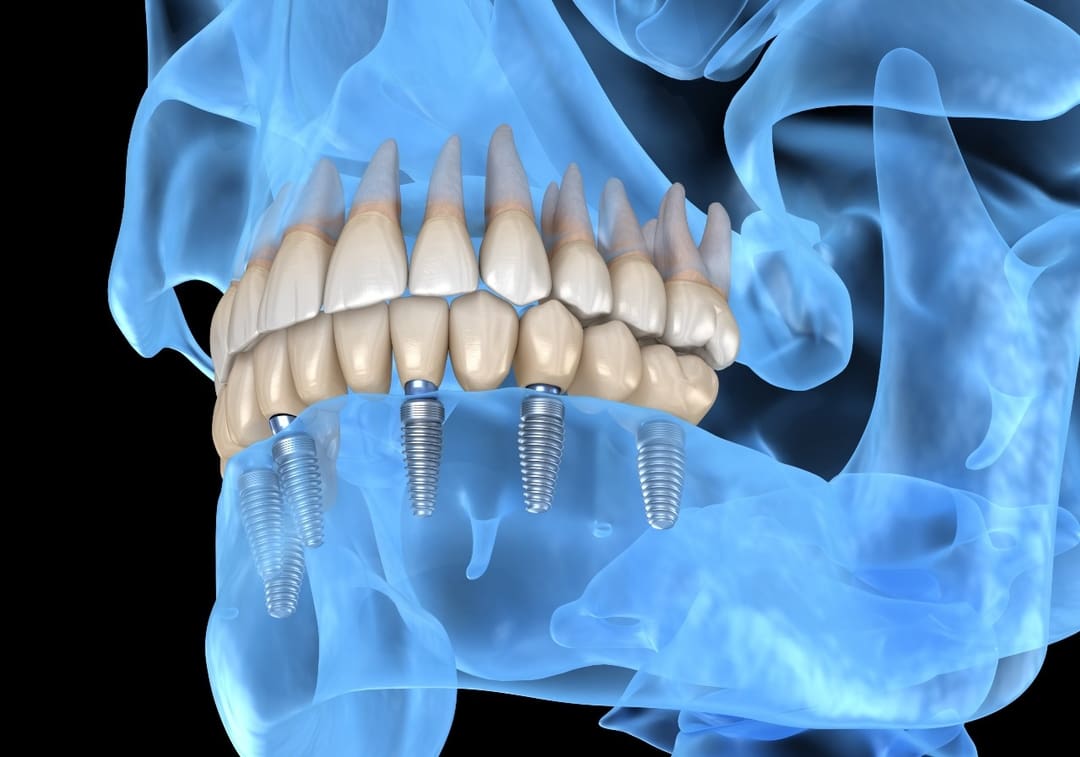
What are the Types of Dental Implants?
If you have been recommended for dental implants you may be overwhelmed with all of the implant choices available. Our team provides reliable, professional referrals to our network of expert providers who are committed to providing safe, affordable, comfortable dental implant care.
What Are Dental Implants?
Dental implants are similar to an artificial tooth root that is placed in the jaw bone. The implants serve as a base for one or many artificial teeth or crowns. Implants can be used to help patients with missing teeth and can be personalized to fit each patient’s needs.
What Are The Types of Dental Implants?
Endosteal Implants
Endosteal implants are the most common type of dental implant used today. This type of implant acts like an artificial tooth root that is placed in the jaw bone. These implants create a base for one or many artificial teeth or crowns that are affixed on top. During the implant process healing time is needed for the implant to fuse to the jawbone. This type of implant is durable, long lasting, and a popular choice.
Subperiosteal Implants
Subperiosteal implants are a good alternative to endosteal implants. This type of implant sits on top of the jawbone, but is still under the gum line. Using a metal frame the post is attached and the gum then heals around the frame. This allows the implant to be held securely in place. Artificial teeth or crowns are then placed on top of the poles that are in the gum area. In many cases this type of implant is used if patients do not have enough jawbone to support endosteal implants. Bone grafting can be done to provide the additional bone needed, but some patients choose to not go through that process.
What Are My Alternatives?
If a patient’s jawbone cannot support dental implants there are techniques available to help rebuild the jawbone and create a stable foundation for implants.
- Bone Augmentation – This procedure helps to restore or regenerate bone in the jaw when a patient does not have enough to support an implant. This process is very successful, and many patients choose this process in order to get those implants they have always wanted.
- Sinus Lift – A sinus lift can add bone below the sinus cavity to help that area if bone has deteriorated.
- Ridge Expansion – Bone grafting material can be added along the top of the jaw or small ridge to help make your jaw wide enough to support dental implants.
What Are Other Dental Implant Options?
- Mini Dental Implants – Mini dental implants are similar to traditional dental implants, but they are used for smaller spaces. Patients that have naturally smaller teeth may find that mini dental implants fit them best. This procedure is less invasive and tends to be less expensive compared to other options. Mini dental implants are made of one solid piece that is screwed into the jawbone. Each implant has a ball on top and this allows the crown to be secured.
- Immediate Load Dental Implants or Teeth In a Day – This type of implant process allows the placement of the crown or temporary tooth at the same time as the dental implant. Patients that have sufficient bone structure in the jaw are good candidates for this option.
- All-On-4 Implants – All-on-4 implants provide patients with implants in just one appointment. With this option implants are not required for each tooth. Four implants are placed, and this makes the process easier and less invasive. Bone grafting is not needed with this option, and temporary teeth can be placed that same day. With this option there is a healing process while the implants fuse to the bone. Once the healing process is complete, permanent teeth can be placed.
Are You Interested in Learning More About Dental Implants?
Our staff is here to help you choose which dental implant providers are best for you. With their high-end technology and implant surgical software, the implant process is faster and more efficient. Our network Of dental implant providers ensures clinical expertise, experience, safety and comfort throughout the implant process.
To find out what dental implant option is best for you, contact our office and our friendly staff can schedule your consultation. Let us help you take that first step to a beautiful smile!